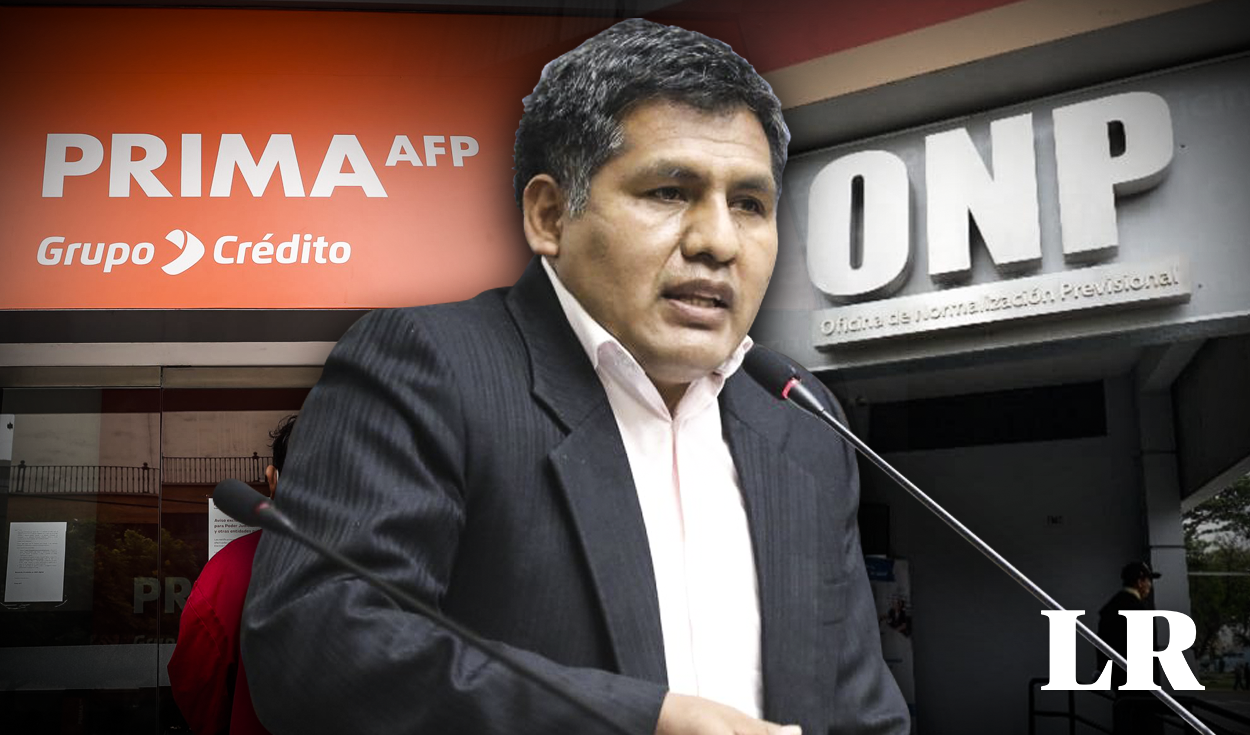
The controversial pension reform was approved by the Plenary last Thursday, June 6, in an irregular vote. Only 38 parliamentarians supported the opinion of the Congressional Economic Commission amid shouts, complaints and blows on the benches. Following this decision, more than 20 legislators presented a motion of censure against the vice president of the Board of Directors, Arturo Alegría.
But this is not the only initiative to enforce the regulations of Congress and protest against these events. It turns out that parliamentarian Jaime Quito asked the president of the Legislative Branch, Alejandro Soto, to annul the second vote on the pension reform law and for the opinion to be reviewed again in the Economy Commission.
They ask to annul the vote on the pension reform law
A few days ago, the Plenary Session of Congress approved, in a second vote, the opinion of the law to modernize the Peruvian pension system. There were only 38 votes in favor, 10 against and 16 abstentions, which validated this irregular decision that generated the discontent of various parliamentarians who were in the Chamber.
The situation was exacerbated when the vice president of Congress, Arturo Alegría, put this legislative proposal to a second vote, which had minor support from legislators who registered their attendance, after having dismissed a previous question raised by parliamentarian Flavio Cruz for the ruling to be returned. on commission.
Faced with this situation, Congressman Jaime Quito sent a letter to the president of the Legislature, Alejandro Soto, asking him to annul the approval of the pension reform law and respect the vote on the previous issue in the Plenary so that it can be reviewed. again in the Economy Commission chaired by César Revilla.
“I request that you respect the vote on the previous question in the Plenary, which determined the return to the Economy, Finance and Financial Intelligence Commission of the opinion of Bill No. 344 and others, which proposes the “Modernization Law of the Peruvian Pension System” and, consequently, the nullity of the subsequent supposed agreements on the opinion, for having violated article 78 of the Regulations of the Congress of the Republic.”, the letter reads.
Finally, Quito mentions that during the previous question, “the first vice president, Arturo Alegría, arbitrarily decided to record alleged votes that had not registered attendance in the in-person session and that after questioning by various congressmen, it was decided to annul the vote and proceed to repeat it when the matter was already decided”.
“Mr. President, in accordance with article 78 of the Congress of the Republic, if a prior question is raised and approved back to Committees, the President must order the corresponding referral, however, in an illegal and arbitrary manner, the vote was annulled; situation which constitutes functional misconduct on the part of the first vice president, who at that time was leading the Plenary Session,” says the legislator.
What changes does the Fujimori pension reform propose?
The opinion to reform the pension system promoted by Fujimorism proposes the creation of a consumption pension that captures 1% of annual purchases, which will be extracted from the sales receipts of the establishments. Likewise, it seeks to raise the early retirement age from 50 to 55 years, sets a mandatory contribution rate for independent workers and a minimum pension of S/600 for contributors to the new system.
Said legislative proposal also includes a measure that prevents AFP members from making an eighth withdrawal, in the event that Congress promotes an initiative in this regard, and establishes a limitation on the availability of resources from individual capitalization accounts ( CIC) for people under 40 years of age.
The pension reform approved by the Plenary Session leaves open the possibility for the employer to participate in the contribution of the worker’s contributions. In this way, in the final text of the Economy Commission, it is left to the discretion of the MEF to evaluate this alternative. Finally, the proposal includes new financial actors to expand the profitability of the funds such as banks, savings and loan banks, finance companies, insurance companies, among others.
Source: Larepublica
Alia is a professional author and journalist, working at 247 news agency. She writes on various topics from economy news to general interest pieces, providing readers with relevant and informative content. With years of experience, she brings a unique perspective and in-depth analysis to her work.











